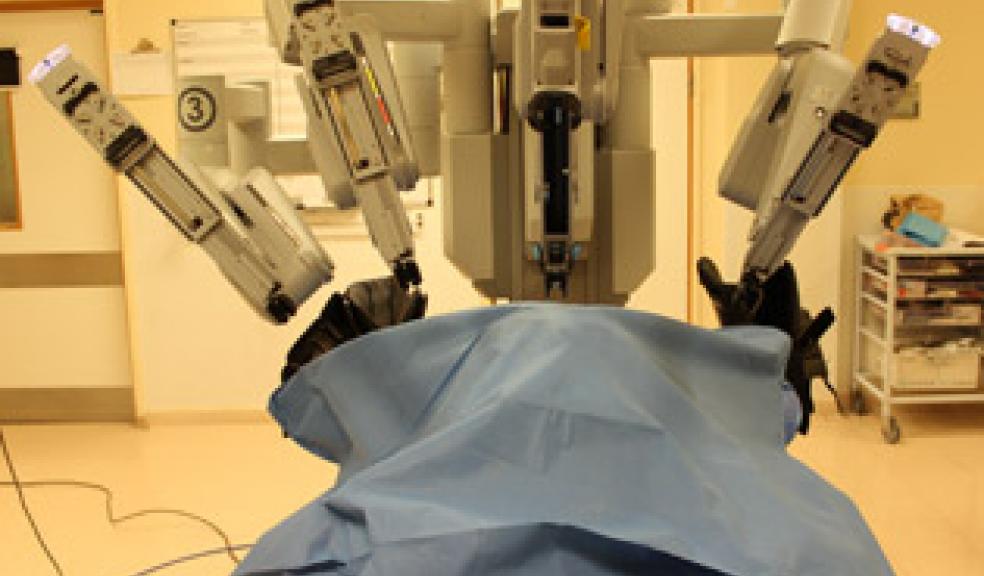
Open day showcases hospital’s new robot
An open day for patients, carers and members of the public is being held next week to showcase the work of a new robot used to treat radical prostatectomies.
On Wednesday 24 June, between 10am-12noon, patients and members of the public will get the opportunity to see for themselves how the robot works and the intricate tasks it can perform. The open day will be held on the level 3 concourse of the Terence Lewis Building.
The da Vinci robot, which is a dual-console model, has been in operation at the hospital since April 2015 and so far has been used around 20 times. It is expected that 150 patients will be treated each year using robot-assisted surgery.
Using the robot, small incisions are made and used to insert miniaturised wristed instruments and a high-definition 3D camera. With the surgeon seated at the console, they can view a magnified, high-resolution 3D image of the surgical site inside the body. At the same time, the robot translates the surgeon’s hand movements into precise micro-movements of the da Vinci instruments.
As a dual console the robot can also be used for training.
Mr Ali Ramsden, Consultant Urologist at Plymouth Hospitals NHS Trust, said: “This robot finally allows patients in Cornwall and Devon to have equal access to the gold standard treatment for prostate cancer. Patients from Cornwall have previously had to travel to Bristol for this treatment. Having the dual console, which is not standard in all machines, will set us up to be a beacon centre for robotic training.”
Mr Paul Hunter-Campbell, Consultant Urologist and Lead for Urology Cancer at Plymouth Hospitals NHS Trust, added: “The purchase of the da Vinci robot fits as part of our strategy to be a Specialised Urology Cancer Centre. Other specialities, for example, gynaecology and colorectal, have procedures that could be performed on the robot. These are not currently commissioned but they could, in time, be considered for research or by the commissioners.”
The da Vinci robot cost around £1million, of which £125,000 was kindly donated by The Chestnut Appeal.











